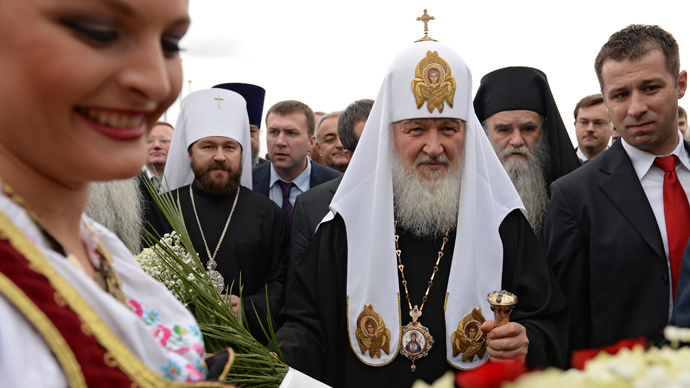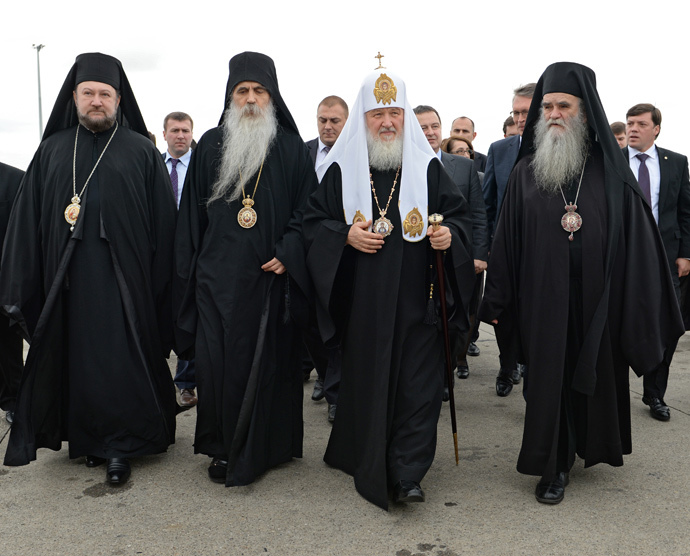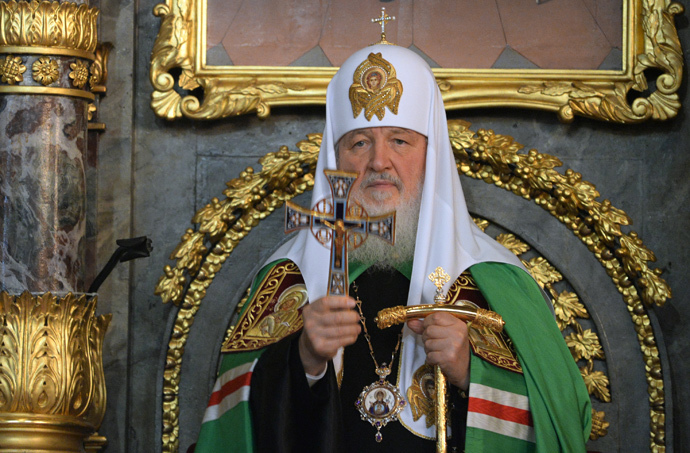Patriarch Kirill urges Europe to return to Christian values, warns against 'rewriting history'

Europe has switched from being a Christian bastion to a locomotive destroying faith, said Patriarch Kirill, the primate of the Russian Orthodox Church, after his arrival on Friday in the Serbian capital of Belgrade for a three-day visit.
As he received an honorary degree at the University of Belgrade, Patriarch Kirill sounded the alarm over the rapid de-Christianization of European society, which "gave up on the fundamental Christian values in its life and activities.”
He cited prominent Serbian 20th century cleric, Saint Nikolai Velimirovich of Ohrid and Zica, who said that “Christ is leaving Europe.”
“Today, when the process of secularization, the denial of absolute truth, the elimination of the concept of sin from the public consciousness reaches unprecedented, apocalyptic dimensions, we regret to note that many European states have actually abandoned their Christian identity,” said the head of the Russian Orthodox Church, as cited by the Interfax news agency.
The recognition of gay marriage, euthanasia at the legislative level and the growing number of abortions indicate that Europe, which used to be a stronghold of Christianity, "has become a locomotive of destructive processes," said Patriarch Kirill.
During his meeting with Serbian president, Tomislav Nikolic, the head of the Russian Orthodox Church warned against attempts to manipulate history.

“History can’t be rewritten, although some in Serbia, the former Yugoslavia and former Soviet Union are trying to do it. And sometimes they teach children according to those adjusted textbooks, hoping that there will be a new generation that will forget about the pages of history, which are unfavorable in terms of the current political challenges,” he said.
He called such a course of action “a grave mistake,” stressing that “historical facts can’t be erased from people's memory, no matter how one rewrites them.”
Patriarch Kirill also expressed his concern over the violations of the rights of the Serbian population in Kosovo, which declared independence from Belgrade in 2008.
Serbia still hasn’t recognized the move, facilitated by aggressive Western backing, which still refers to Kosovo as its own autonomous province of Kosovo and Metohija.
“The Serbs should freely live in Kosovo and Metohija. No one should threaten them, no one has the right to destroy their monuments, their temples and monasteries. No one can hamper their movement and their ability to stay in constant contact with their families,” the cleric stressed.
The Russian Orthodox Church “supports the Serbian people in their understanding of the Kosovo issue,” Patriarch Kirill said, calling Kosovo the spiritual center of the Serbian people and their church.
‘Every Russian feels at home in Serbia.’
The trip is dedicated to the 100th anniversary of the beginning of World War I, when Russia and Serbia fought on the same side.
The primate of the Russian Orthodox Church is expected to honor
the memory of Russian and Serbian soldiers, sanctifying a Russian
necropolis and a monument to the last Russian tsar, Nicholas II.
The focal point of the visit will be a joint service by Patriarch
Kirill and his Serbian counterpart, Patriarch Irinej, in the
largest Orthodox Church building in the world – Belgrade’s
Cathedral of Saint Sava – on Sunday.
“When a Russian man comes to Serbia, he feels truly at home. The
common faith, common culture, common close historical ties, the
common blood spilled in the name of common victories – all this
unites our peoples,” Patriarch Kirill said, after landing at
Belgrade’s Nikola Tesla airport.

The head of the Russian Orthodox Church also expressed confidence
that the joint prayers and discussions, taking place during his
visit, will help Russia and Serbia “march ahead with more
confidence, holding hands and opening hearts to each other.”
Serbia’s Orthodox Patriarch Irinej welcomed Kirill at the
airport, saying “we really want you to feel at home, among
your own kind.”
Moscow and Belgrade have been close allies for centuries,
establishing diplomatic relations in 1838 after Russia helped the
Serbs gain independence from the Ottoman Empire.
In 1999, Russia strongly opposed the NATO bombing of Yugoslavia,
which Serbia was part of, and did everything it could to prevent
the military operation from getting UN authorization.
Russia is currently Serbia’s top economic partner, with the
volume of trade between the two states estimated at around $3
billion. The two countries have also shared a visa-free policy
for travelers since 2008.












